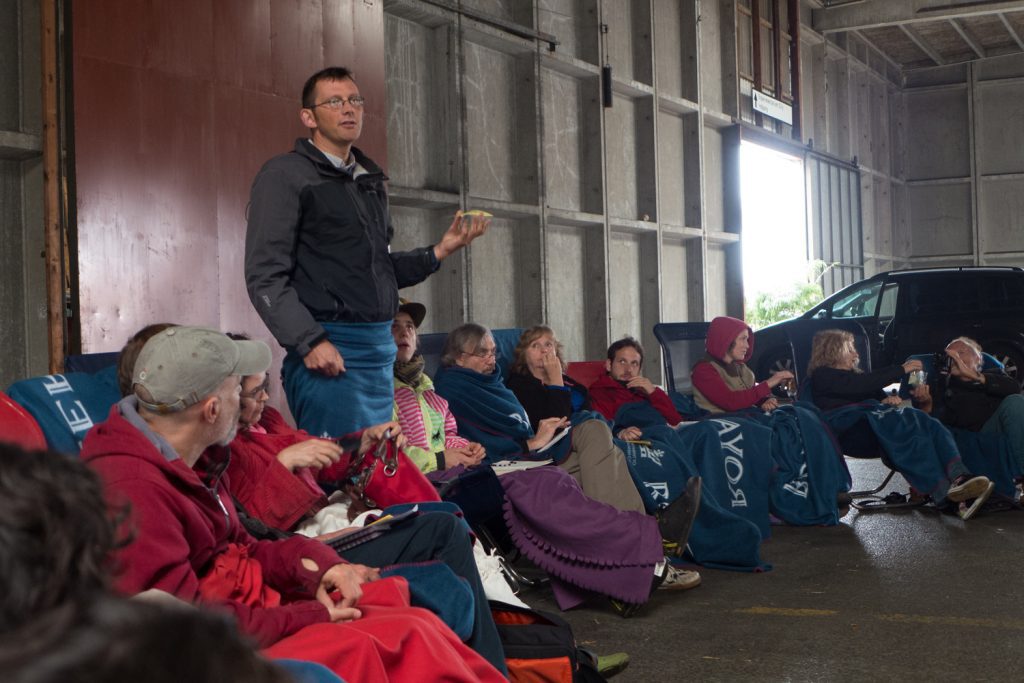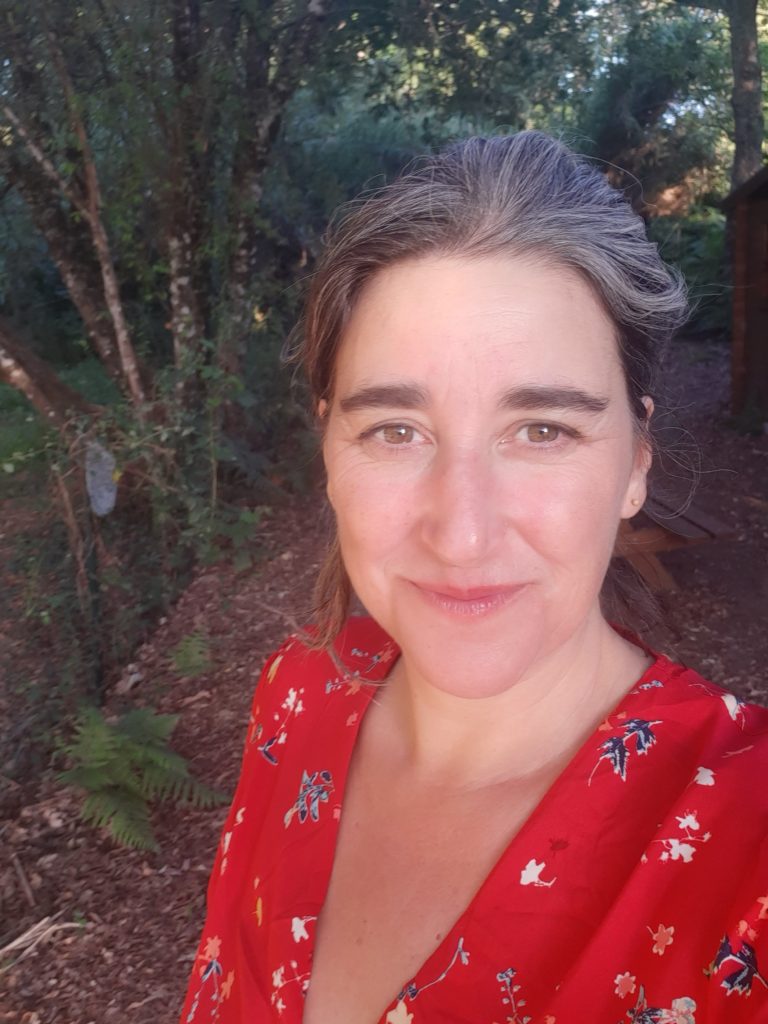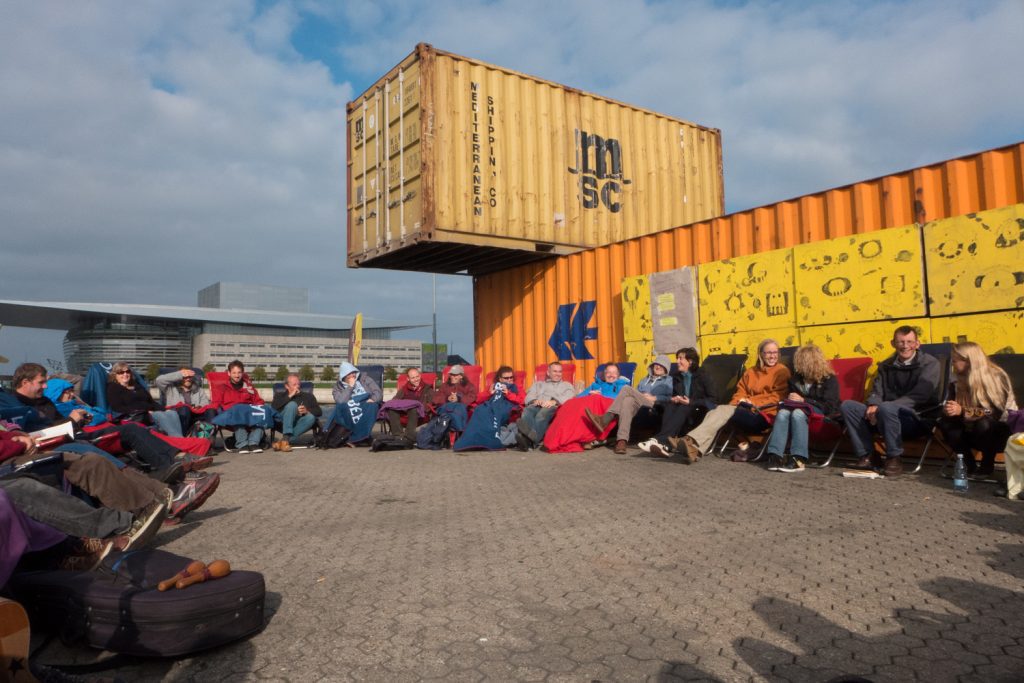Imperfeições e desconcertos
By Filipa Pimentel 18th October 2023
Hoje comecei o dia a trocar mensagens com o meu irmão, ainda durante aquela primeiríssima hora do fim-de-semana que, por me abrir o espaço no tempo do crepúsculo, é frequentemente um momento que me oferece acesso a perspectivas pouco visitadas e quando começo processos de reflexão que se instalam por vários dias.
O meu irmão interessa-se por composição musical e dei comigo a tentar descrever-lhe o que seria para mim uma música que representasse ‘Transição’: imagino uma melodia que nos eleve, nos inspire, com ritmos que nos evocam a natureza; que exprima simplicidade mas também que nos surpreenda – que tenha um certo viés, que saia dos caminhos trilhados por hábito; sobretudo, que não seja um exemplo de ‘perfeição’. Isso! Foi por me ter demorado a pensar no conceito de ‘imperfeição’ (e do desconforto que a imperfeição nos pode trazer) que me lembrei de um par de histórias que me surgiram um destes dias.
O meu colega Philipp integrou a equipa da Transition Network há cerca de um ano. No processo de encontrar o seu papel na equipa e a postura que convém a esse papel, o Philipp faz listas de perguntas que vai distribuindo, usando os vários canais que nos servem na comunicação. Um dia, já não sei em que canal, encontrei uma pergunta que me era destinada que me desconcertou: “Tens a certeza que nós ainda somos assim?”
A pergunta vinha emparelhada com um VÍDEO (ver acima) que eu conheço bem: um vídeo gravado pelo Rob Hopkins, durante um encontro dos Hubs de Transição, em 2014, em Copenhaga, Dinamarca – entrevistados pelo Rob, fomos aparecendo felizes e emocionados, mencionando a resiliência e criatividade como sendo uma característica comum de quem é ativista de Transição. Este grupo de pessoas vindas dos 4 cantos do mundo para um encontro internacional, na própria manhã do evento, encontrámo-nos à porta de um espaço que não reunia as condições mínimas nos receber. No espaço de uma hora, ocupámos um parque de estacionamento, ali numa rua ao lado; todo o grupo se ativou, montámos toda a estrutura necessária a uma conferência internacional de Hubs de Transição e lançámos o encontro de forma tão focada e inspirada como nos anos anteriores, com menos de 30 minutos de atraso.
Grande parte das imagens foram capturadas na nossa sala de reunião: o parque de estacionamento, e foi esse desvio do plano que perdurou como símbolo da resiliência dos activistas de transição durante muito tempo, para este grupo, e foi uma história contada muitas vezes, muito para além dele.

Histórias de imperfeições
Lembrei-me de tantas outras histórias de imperfeições, desvios de plano e das reações inspiradas de activistas de transição mas última história que vivi, ainda hoje me faz sorrir: durante o 3º Encontro pelas Florestas – edição Ibérica (8-9 Setembro, 2023, Fafe, Portugal), organizado pela Reflorestar Portugal, eu aceitei facilitar uma discussão depois da exibição do fantástico e inspirador documentário ALTER NATIVAS, de Agustí Corominas y Juan del Río (Rede de Transição Espanha). Nesse dia, houve atrasos e seriam talvez 22:30h quando finalmente se lançou a exibição do documentário (que tem mais de duas horas); durante esses dias choveu como se de um dilúvio se tratasse e a tenda que nos albergava vertia. Convencida que o atraso e as condições climatéricas desencorajariam a intenção do público de ficar para uma discussão, quase à 1:00 da manhã, vinha já de saída (às escuras porque, com a tempestade, não se podia mexer na electricidade) quando me chamaram. Não me passou pela cabeça dizer que não. Lá fui eu às apalpadelas, guiada pelas vozes do público que enchia a tenda, encontrei o centro, e facilitei uma discussão acesa, respondi às perguntas dos participantes inspirados, no breu total. Não faço ideia quantas pessoas estavam à minha volta e quem participou nessa conversa comigo, mas pareceu-me ser eu a única pessoa que terá duvidado que o debate fosse acontecer. E provavelmente a única pessoa que solta uma gargalhada ainda hoje, quando revivo a situação.
Para mim, os desconcertos que certas perguntas me trazem são tão férteis como os desvios do que pensei controlar. São desconfortos da mesma natureza, daqueles que me incendeiam a imaginação e a criatividade, tal como a minha querida Isabela Menezes da Transição Brasil dizia, no vídeo do encontro dos Hubs. Sei também que o Philipp intui que eu preciso deste tipo de perguntas para encontrar a essência da resposta que lhes possa dar.
Vou responder ao Philipp que histórias de resiliência, criatividade e inspiração face aos desafios que surgem, neste nosso movimento e para além dele, há milhares. Tenho a certeza. Só temos que as ouvir e contar em voz alta.
Também sei que a pergunta desconcertante do Philipp traz uma mensagem importante, especificamente dirigida às nossas equipas de apoio internacionais – interpreto-a como um apelo para que a nossa energia continue sempre a alimentar a experimentação num espaço novo, desconhecido, bem fora da nossa zona de conforto, e que fujamos da estagnação e da manutenção do status quo. Como eu concordo totalmente, eu diria que só temos que organizar mais encontros, lançarmo-nos em projectos que desconhecemos, sem esperar que tudo seja perfeito, e acolher momentos de tensão – os desastres acontecerão e as histórias também – afinal, somos todos ‘Transição’ 🙂
‘Sem desconforto não há transição!’ (Susana do projecto ‘Origens’, Viseu, Portugal)
___________
This post is part of Filipa Pimentel’s regular reflections about life in the Transition Movement. Filipa connects personal experiences and reflections to the wider work the movement is doing in the world. Her roles as Co-Lead Link of Transition Network and many years as Hubs coordinator inform her perspectives and reflections; so does the work Filipa does at local and regional levels in various places. These reflections are published in Filipa’s first language: Portuguese.
A bit more about Filipa:


“I feel that the connection between transitioners is magical: there is this feeling that we belong to the same family, even if we are coming from such different parts of the world, backgrounds, cultures, experiences, languages, contexts. The openness to learn and the capacity to listen actively, the compassion and the creativity are just some of the rare qualities I see around me while working in this field.”
Imperfections and confusion
Today I started the day exchanging messages with my brother, still during that very first hour of the weekend which, because it opens up space for me in the twilight hours, is often a moment that offers me access to little-visited perspectives and when I begin processes of reflection that last for several days.
My brother is interested in musical composition and I found myself trying to describe to him what a piece of music that represents ‘Transition’ would be like for me: I imagine a melody that uplifts us, inspires us, with rhythms that evoke nature; that expresses simplicity but also surprises us – that has a certain bias, that goes off the beaten track; above all, that is not an example of ‘perfection’. It was because I was thinking about the concept of ‘imperfection’ (and the discomfort that imperfection can bring us) that I remembered a couple of stories that came to me the other day.
My colleague Philipp joined the Transition Network team about a year ago. In the process of finding his role in the team and the posture that suits that role, Philipp makes lists of questions that he distributes, using the various channels that serve us in communication. One day, I don’t know in which channel, I came across a question that was meant for me and which disconcerted me: “Are you sure we’re still like this?”
The question was paired with a VIDEO (see above) that I know well: a video recorded by Rob Hopkins during a Transition Hubs meeting in Copenhagen, Denmark in 2014 – interviewed by Rob, we appeared happy and emotional, mentioning resilience and creativity as a common characteristic of Transition activists. This group of people had come from all four corners of the world for an international meeting, and on the morning of the event we found ourselves outside a space that didn’t have the minimum conditions to welcome us. In the space of an hour, we occupied a car park in the next street; the whole group was activated, we set up all the necessary structure for an international conference of Transition Hubs and we launched the meeting as focused and inspired as in previous years, less than 30 minutes late.
Most of the images were captured in our meeting room: the car park, and it was this deviation from the plan that has endured as a symbol of transition activists’ resilience for a long time, for this group, and has been a story told many times, far beyond it.



Stories of imperfection
I remembered so many other stories of imperfections, deviations from the plan and the inspired reactions of transition activists, but the last story I experienced still makes me smile today: during the 3rd Meeting for Forests – Iberian edition (8-9 September 2023, Fafe, Portugal), organised by Reflorestar Portugal, I agreed to facilitate a discussion after the screening of the fantastic and inspiring documentary ALTER NATIVAS, by Agustí Corominas and Juan del Río (Transition Network Spain). On that day, there were delays and it was perhaps 10.30pm when the documentary (which is over two hours long) was finally shown; during those days it rained like a deluge and the tent that housed us was leaking. Convinced that the delay and the weather conditions would discourage the audience from staying for a discussion, at almost 1am I was leaving (in the dark because, with the storm, the electricity couldn’t be touched) when I was called. It did not cross my mind to say no. I groped my way out, guided by the voices of the audience that filled the tent, found the centre of the room and facilitated a heated discussion, answering the questions of the inspired participants in total darkness. I have no idea how many people were around me and who took part in this conversation with me, but I seemed to be the only person who doubted that the debate would take place. And probably the only person who bursts into laughter even today when I relive the situation.
For me, the disconcertions that certain questions bring me are as fertile as the deviations from what I thought I could control. They are discomforts of the same nature, the kind that ignite my imagination and creativity, as my dear Isabela Menezes from Transição Brasil said in the video of the Hubs meeting. I also know that Philipp realises that I need these kinds of questions to find the essence of the answer I can give him.
I’m going to tell Philipp that there are thousands of stories of resilience, creativity and inspiration in the face of the challenges that arise in our movement and beyond. I’m sure of it. We just have to hear them and tell them out loud.
I also know that Philipp’s disconcerting question carries an important message, specifically addressed to our international support teams – I interpret it as a call for our energy to always keep fuelling experimentation in a new, unknown space, well outside our comfort zone, and to flee stagnation and the status quo. As I totally agree, I would say that we just have to organise more meetings, launch ourselves into projects we don’t know about, without expecting everything to be perfect, and welcome moments of tension – disasters will happen and so will stories – after all, we are all ‘Transition’ 🙂
‘Without discomfort there is no transition!’ (Susana from the ‘Origens’ project, Viseu, Portugal)
